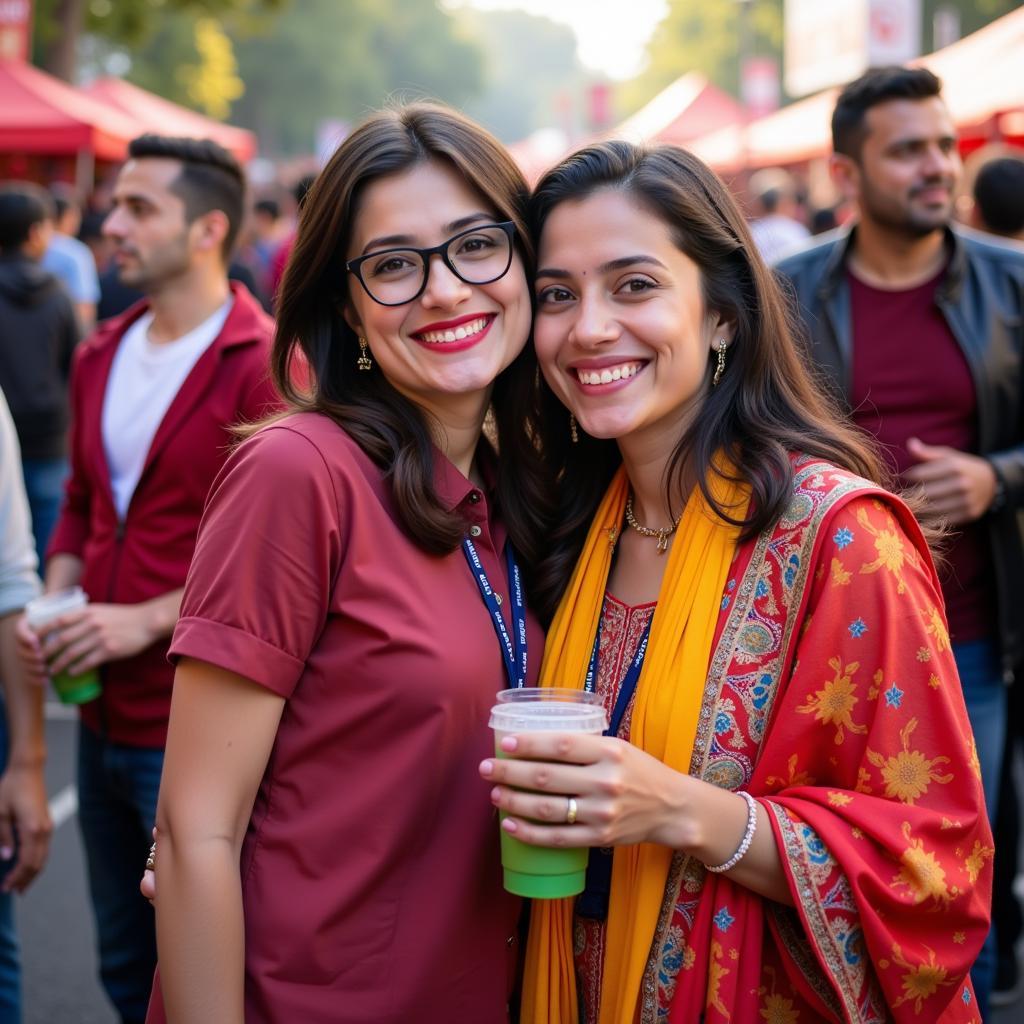“Mela Ko English Mein Kya Kahenge?” This simple question opens a fascinating exploration into the heart of Indian culture and the challenges of cross-cultural translation. While a direct, single-word equivalent doesn’t perfectly capture the essence of a “mela,” we can explore several English words and phrases that come close, depending on the specific type and context of the gathering.
Understanding the Different Facets of a “Mela”
The word “mela” encompasses a wide range of gatherings, from religious festivals to agricultural fairs, and even entertainment events. This diversity makes a single translation tricky. Let’s delve into some common types of “melas” and their closest English counterparts.
Religious Melas: A Spiritual and Social Convergence
Religious “melas” are often associated with pilgrimages and celebrations of specific deities or events. These gatherings are characterized by a vibrant atmosphere of devotion, rituals, and social interaction. Think of the Kumbh Mela, one of the largest religious gatherings in the world. In this context, words like “festival,” “pilgrimage,” or “religious gathering” can be used.
Agricultural Melas: Showcasing Rural Life and Produce
Agricultural “melas” serve as platforms for farmers to display their produce, livestock, and agricultural technologies. They are also social events, often featuring competitions, entertainment, and local cuisine. “Agricultural fair,” “farmers’ market,” or “county fair” are suitable translations in this scenario.
Entertainment Melas: A Celebration of Culture and Community
Entertainment “melas” focus on cultural performances, music, dance, and other forms of entertainment. They can be part of larger festivals or stand-alone events. In these cases, “fair,” “carnival,” or “festival” are appropriate translations.
Choosing the Right English Word for “Mela”
So, “mela ko english mein kya kahenge?” The answer depends on the specific context. Consider the following:
- Religious context: “Religious festival,” “pilgrimage,” or “holy gathering.”
- Agricultural context: “Agricultural fair,” “farmers’ market,” or “county fair.”
- Entertainment context: “Fair,” “carnival,” or “festival.”
Beyond the Single Word: Capturing the Essence of “Mela”
While these translations provide a starting point, it’s important to remember that the word “mela” carries cultural connotations that are difficult to fully convey in English. A “mela” is more than just a gathering; it’s a vibrant expression of community, tradition, and celebration. It’s a space where people from different backgrounds come together to share experiences, connect with their roots, and create lasting memories.
Expert Insights: Dr. Anjali Sharma, Cultural Anthropologist
“Translating ‘mela’ is a challenge because it’s not just about the event itself, but the social and cultural significance it holds within Indian society. It’s a tapestry of experiences, woven together by shared traditions and a sense of belonging.”
“Mela”: A Celebration of Life in All its Forms
Ultimately, the best way to understand a “mela” is to experience one. It’s a celebration of life in all its forms, a vibrant tapestry of sights, sounds, and emotions that leaves a lasting impression on all who attend.
 Mela: A Celebration of Life
Mela: A Celebration of Life
In conclusion, while a single perfect translation for “mela ko english mein kya kahenge” remains elusive, understanding the nuances of the word and its various contexts allows us to appreciate the rich cultural significance of this vibrant Indian tradition.
FAQ
- What is the literal translation of “mela” in English? There isn’t one single word, but “fair,” “festival,” or “gathering” are often used.
- What are some common types of melas? Religious, agricultural, and entertainment melas are common.
- What is the significance of a mela in Indian culture? Melas are important social and cultural events that bring communities together.
- What is the Kumbh Mela? One of the largest religious gatherings in the world.
- Where can I find more information about melas? Search online for specific melas or explore resources on Indian culture.
Looking for More?
Explore other articles on ViperCircle about Indian culture, traditions, and the power of language. Connect with us for any questions or support. Email: Contact@ViperCircle.com address: G-5, लोअर परेल, सेनापति बापट मार्ग, मुंबई, महाराष्ट्र – 400013, भारत।. We have a 24/7 customer support team.